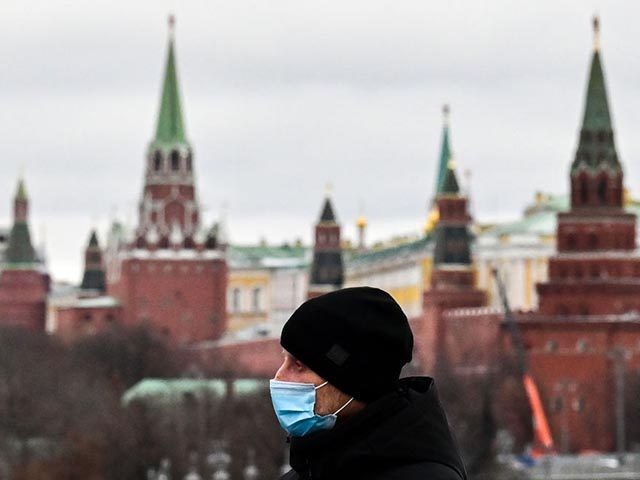Kremlin spokesman Dmitry Peskov on Friday said the Russian population had a high level of “natural immunity” to the Chinese coronavirus that aided in the nation’s efforts to combat the pandemic, according to Tass.
“Thanks to quite precise measures taken last year, we are now in a situation, which specialists characterize as a high immunization level — at least in large cities with a population of over one million people,” Peskov asserted. “It is thanks to this that we find ourselves in a much more favorable environment than many, many other states.”
Peskov emphasized that he was referring to “natural immunity” but did not define the term.
The “precise measures” the government mentioned largely refer to stringent lockdowns, bans on large gatherings, and the government’s efforts to promote its domestic coronavirus vaccine candidate, Sputnik V.
Russian President Vladimir Putin approved the use of Sputnik V for emergency use in August 2020 despite the fact that the product had not completed typically necessary Phase III clinical trials and no health officials seemingly had a role in Putin’s decision. Putin was an accomplished intelligence agent and judoka before taking the helm of the country with no known background in medicine or science. In November 2020, the Russian Gamaleya Institute claimed the vaccine was 92 percent effective. It was unclear if that figure represented the prevention rate for extreme cases or spread in general. A February study revised that figure slightly to 91 percent effective at preventing extreme cases but did not decisively affirm whether Sputnik V could effectively prevent the spread of the disease.
International doubts about the Russian vaccine candidate have hindered Kremlin efforts to export Sputnik V, though it did find a few takers in rogue states like Venezuela and managed to secure a few buyers in Europe.
Domestically, the government began a “large-scale” rollout of Sputnik V in December, particularly targeting teachers and healthcare workers. As of March, however, an estimated three percent of Russia’s population had received the vaccine, suggesting the national rollout’s results may not have been as successful as Peskov presented.
Peskov went on to champion the government’s efforts to contain the pandemic:
But the fact remains: the measures that the state authorities have been taking throughout this year made it possible to live through this period relatively successfully. Here belong the imposition of restrictions and their gradual withdrawal, the differentiation of restrictions depending on the situation in each region, the efforts taken by the authorities in the course of the year and the way our healthcare system was organized.
The Kremlin’s coronavirus “restrictions,” especially the bans on large gatherings, have often conflicted with large-scale protests demanding the release of prominent dissident Alexei Navalny. Russian law enforcement has regularly cited such bans when suppressing the demonstrations.
Russian efforts to enforce its coronavirus restrictions on large gatherings have extended to lawsuits against various social media platforms. It is a crime in Russia to incite minors to attend illegal gatherings. With most large gatherings deemed illegal under coronavirus restrictions, many social media companies have found themselves hosts to a plethora of technically illegal content, which many have refused to delete.

COMMENTS
Please let us know if you're having issues with commenting.